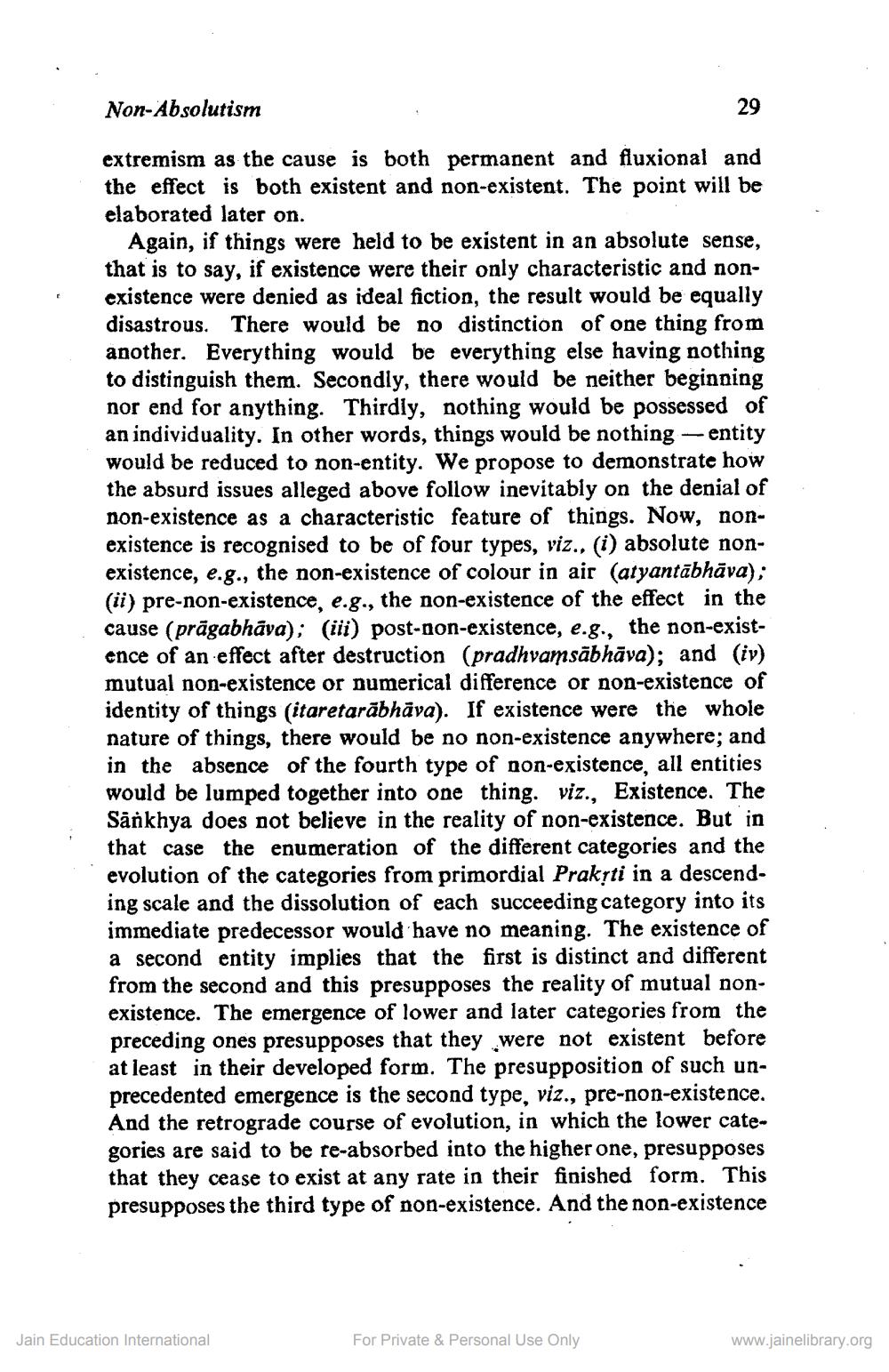________________
Non-Absolutism
extremism as the cause is both permanent and fluxional and the effect is both existent and non-existent. The point will be elaborated later on.
29
Again, if things were held to be existent in an absolute sense, that is to say, if existence were their only characteristic and nonexistence were denied as ideal fiction, the result would be equally disastrous. There would be no distinction of one thing from another. Everything would be everything else having nothing to distinguish them. Secondly, there would be neither beginning nor end for anything. Thirdly, nothing would be possessed of an individuality. In other words, things would be nothing - entity would be reduced to non-entity. We propose to demonstrate how the absurd issues alleged above follow inevitably on the denial of non-existence as a characteristic feature of things. Now, nonexistence is recognised to be of four types, viz., (i) absolute nonexistence, e.g., the non-existence of colour in air (atyantabhāva); (ii) pre-non-existence, e.g., the non-existence of the effect in the cause (prāgabhāva); (iii) post-non-existence, e.g., the non-existence of an effect after destruction (pradhvamsābhāva); and (iv) mutual non-existence or numerical difference or non-existence of identity of things (itaretarābhāva). If existence were the whole nature of things, there would be no non-existence anywhere; and in the absence of the fourth type of non-existence, all entities would be lumped together into one thing. viz., Existence. The Sankhya does not believe in the reality of non-existence. But in that case the enumeration of the different categories and the evolution of the categories from primordial Prakṛti in a descending scale and the dissolution of each succeeding category into its immediate predecessor would have no meaning. The existence of a second entity implies that the first is distinct and different from the second and this presupposes the reality of mutual nonexistence. The emergence of lower and later categories from the preceding ones presupposes that they were not existent before at least in their developed form. The presupposition of such unprecedented emergence is the second type, viz., pre-non-existence. And the retrograde course of evolution, in which the lower categories are said to be re-absorbed into the higher one, presupposes that they cease to exist at any rate in their finished form. This presupposes the third type of non-existence. And the non-existence
Jain Education International
For Private & Personal Use Only
www.jainelibrary.org




